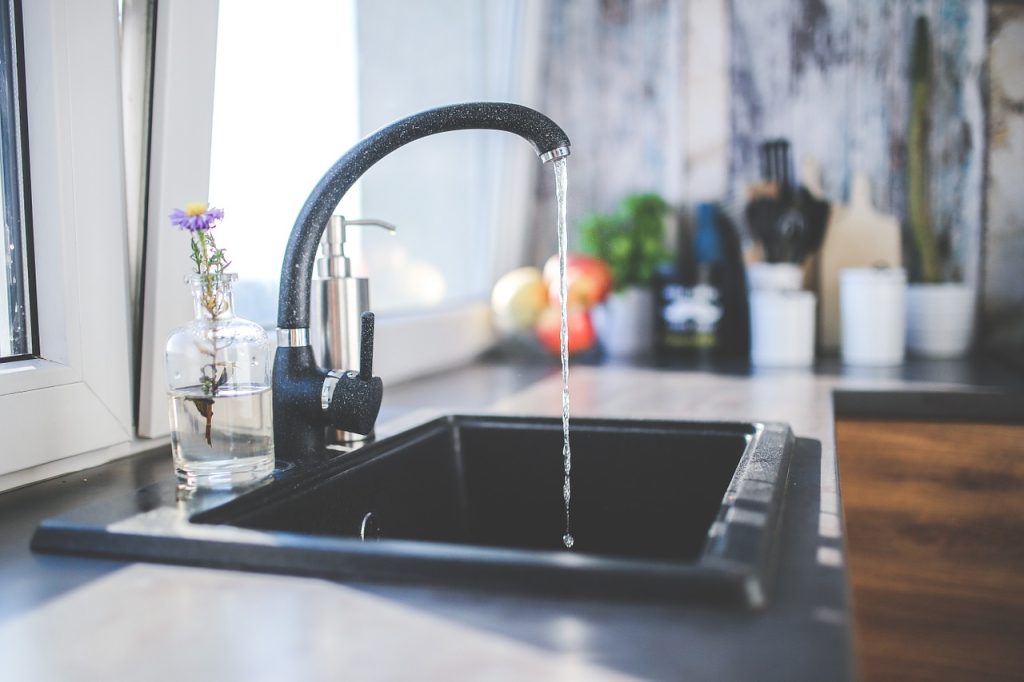Concrete countertops are becoming an increasingly popular choice among homeowners and interior designers due to their unique aesthetic and exceptional durability. Known for their industrial chic look, these countertops can be customized to fit any kitchen design, from modern to rustic. While concrete countertops offer numerous benefits, it’s essential to be aware of their potential drawbacks and maintenance requirements to ensure they remain a long-lasting and beautiful feature in your home.
The Benefits of Concrete Countertops
Durability and Strength:
Concrete is incredibly durable and can withstand the wear and tear of a busy kitchen. It’s resistant to scratches and heat, making it an excellent surface for meal prep and cooking activities.
Customization:
One of the most appealing aspects of concrete countertops is the ability to customize them. You can choose from various colors, finishes, and textures, and even embed decorative elements like glass, stones, or shells. The versatility of concrete allows for a truly unique countertop that complements your kitchen’s style.
Unique Aesthetic:
Concrete countertops provide a distinctive, modern look that can be tailored to fit a wide range of design aesthetics. Whether you prefer a polished, smooth surface or a more rustic, textured appearance, concrete can be finished to match your vision.
Eco-Friendly Options:
When sourced and produced responsibly, concrete can be an environmentally friendly choice. Some manufacturers offer countertops made from recycled materials, reducing the environmental impact.
Seamless Integration:
Concrete countertops can be cast in any shape or size, allowing for seamless integration with sinks and backsplashes. This flexibility is particularly beneficial for custom kitchen designs and layouts.
Things to Be Careful Of
While concrete countertops offer many advantages, there are also some potential drawbacks and maintenance considerations to keep in mind.
Susceptibility to Stains:
Despite its durability, concrete is a porous material, which means it can absorb liquids and become stained if not properly sealed. Spills from acidic substances like lemon juice, vinegar, or wine can cause discoloration if not cleaned up promptly.
Sealing and Maintenance:
To protect against stains and water damage, concrete countertops must be sealed regularly. The frequency of sealing depends on the type of sealer used, but it typically needs to be done every one to three years. Additionally, waxing the surface every few months can help maintain its finish and prevent scratches.
Cracking:
Concrete can develop hairline cracks over time due to natural shrinkage and movement. While these cracks are usually cosmetic and don’t affect the structural integrity of the countertop, they can be a concern for some homeowners. Proper installation and the use of reinforcement materials can help minimize the risk of cracking.
Weight Considerations:
Concrete countertops are heavy and may require additional structural support in your kitchen. It’s important to ensure that your cabinetry and flooring can bear the weight of the countertops to avoid any potential damage.
Cost:
Custom concrete countertops can be more expensive than other materials like laminate or tile. The cost can vary widely depending on the complexity of the design, the quality of the materials used, and the expertise of the fabricator. It’s essential to budget accordingly and consider the long-term benefits of investing in a durable, custom countertop.
Maintenance Tips for Concrete Countertops
To keep your concrete countertops looking their best, follow these maintenance tips:
Clean Spills Immediately:
Wipe up spills as soon as they occur to prevent staining. Use a pH-neutral cleaner and avoid harsh chemicals that can damage the sealant.
Use Cutting Boards and Trivets:
Although concrete is resistant to scratches and heat, using cutting boards and trivets can help prevent surface damage and extend the life of the sealer.
Regular Sealing:
Follow the recommended schedule for sealing your countertops. This will protect against stains and water damage while maintaining the countertop’s appearance.
Avoid Abrasive Cleaners:
Use gentle cleaning products and soft cloths to clean your countertops. Abrasive scrubbers can scratch the surface and wear down the sealer.
Concrete countertops offer a unique combination of durability, customization, and style that can enhance any kitchen design. Their ability to withstand daily kitchen activities, coupled with the vast array of design possibilities, makes them an attractive choice for many homeowners. However, it’s important to be aware of the potential downsides, such as staining, cracking, and the need for regular maintenance. By understanding these factors and taking proper care of your concrete countertops, you can enjoy their beauty and functionality for many years to come.

